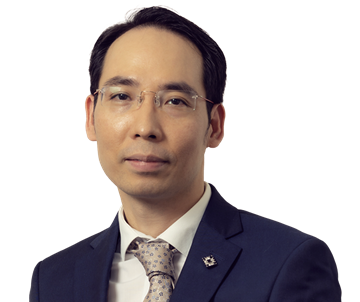Asia-Pacific employment law bulletin 2024
Hong Kong
Discretionary vs contractual bonuses
Hong Kong tribunals and courts have long considered substance over form in relation to so-called ‘discretionary’ bonuses. Unlike some other jurisdictions, simply stating that a bonus is ‘discretionary’ is not a sufficient barrier to claims from employees for unpaid bonuses.
In Kan Kin Tong v. Man Leong Fire Services Ltd [2023] HKDC 513, the plaintiff’s earnings were made up of (i) a monthly basic salary and (ii) a percentage of the net profits of his employer. When the employee departed from his employer to set up his own business, his former employer refused to pay the outstanding bonus amount. The net profit percentage was termed by his employer as a “bonus” (which was also reflected in the Chinese name of the bonus agreements). The District Court noted in particular that, although the bonus payments were subject to the employer’s final decision, the employer had only ever made one deduction from the employee’s bonus entitlements, when the employer was under financial pressure (i.e. the employer had never exercised its discretion to reduce the bonus payments). Despite the wording around discretion, the bonus agreements did not include any scenarios or conditions under which the employer could exercise its discretion to reduce the bonus payable. The mechanism to calculate the bonus payment was also straightforward. The District Court therefore found that, even if the bonus payment was discretionary, the employer’s exercise of its discretion in this way was “unreasonable and irrational”.
Employers should therefore be aware that simply labelling a bonus “discretionary” does not protect the bonus mechanism from scrutiny. Building in a clear framework for how the employer might exercise discretion will assist in defending claims from employees who view the bonus as a contractual right.
Pregnancy discrimination
The case of 周露娜 v 中旅貨運物流中心有限公司 [2023] HKDC 1115 served as a timely reminder that the District Court is willing to ensure employees who prove discrimination on the part of their employers are compensated appropriately.
In this case, the pregnant claimant’s employment contract was not renewed, ostensibly due to an internal reorganisation, and her employer refused to pay her a year-end bonus. The District Court held that the respondent had discriminated against the claimant in dismissing her and ordered her employer to pay damages in relation to the claimant’s loss of income, her year-end bonus, and interest. The respondent was also ordered to pay HKD 130,000 to the claimant for injury to feelings, which could be revised if the respondent did not issue an apology and reference letter.
Relevant policies and training in relation to workplace discrimination should be regularly reviewed and updated, to ensure employees are aware of the risks when terminating employees on the basis of any protected characteristics. When terminating employees due to, for example, an internal reorganisation, the reasons and rationale should be clearly documented internally, to provide a robust document trail if any terminations are challenged.
Guidance on springboard injunctions
The Court of First Instance (the CFI) provided useful guidance in relation to springboard injunctions in the case of DCL Communication Limited v Lam Yim Chi Julia and Reach Technology Solutions Limited [2023] HKCFI 98. A former employee of DCL Communication (DCL) departed the company and joined Reach Technology Solutions (Reach) 19 months later. The employee’s contract included a confidentiality clause, but no non-compete restrictive covenant. In December 2021, DCL lost a contract with a long-standing client, and was also told by another client that the former employee had contacted them to sell Reach’s services. DCL applied for a springboard injunction to prevent the employee and Reach from using its confidential information (including client lists and expiry dates of clients’ contracts).
The CFI refused DCL’s application, holding that there was no proof that the former employee had misused DCL’s confidential information. DCL also indicated that clients would ask more than one provider for quotes when renewing, so contact between the former employee and DCL’s clients was not a determinative sign that the former employee was misusing DCL’s confidential information. Nor did it indicate that Reach had an unfair competitive advantage over DCL. The CFI also noted that, as over 18 months had passed since the former employee’s departure from DCL when they joined Reach, any profit margin information “must have become outdated”.
The case is a reminder of the high bar which applies when seeking a springboard injunction. Former employers seeking these remedies must ensure they have robust proof of the former employee’s (mis)use of confidential information and the advantages the employee and their new employer have gained as a result. The CFI’s indication that 18 months was sufficient to render certain business information “outdated” is an interesting insight into the time periods in which the protection of confidential information is most urgent.
Looking ahead
The most significant development we expect in 2024 relates to the review of the so-called “418” or “continuous contract” requirement for part time employees. Currently, an employee would only qualify for employment rights and benefits (such as paid annual leave and statutory maternity/ paternity leave) if they work for the same employer for at least 18 hours per week for four or more consecutive weeks. The new proposals would see the thresholds amended to instead capture all employees working for the same employer for at least 68 hours over four consecutive weeks. The change will have implications for people engaged or employed on a part-time basis, as it is expected that more employees, including casual workers, will be captured by the expanded “continuous contract” rule.
Our team

Kathleen Healy Partner
London

Stephanie Chiu Counsel
Hong Kong

Fan Li Senior Associate
Shanghai

River He Associate
Shanghai

Rachel Harris Associate
London



